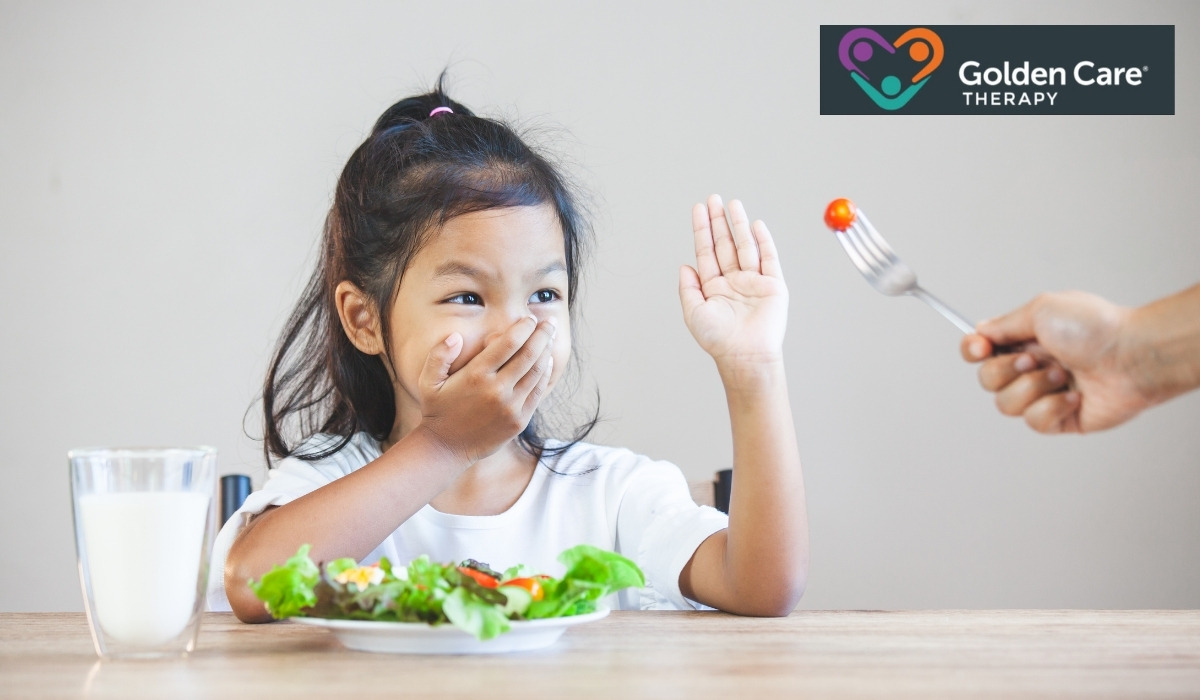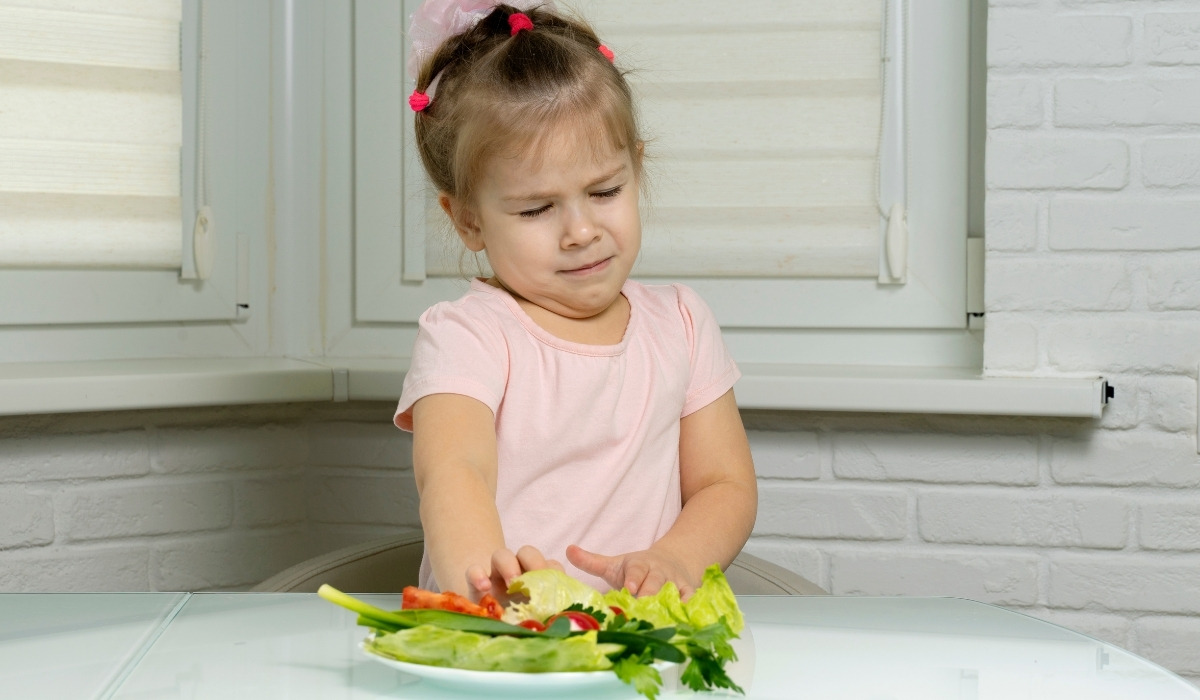Children with autism often experience food neophobia, which is characterized by a fear of trying new foods. This phenomenon can be particularly concerning for parents and caregivers, as it may significantly affect the children’s nutrition and overall health.
Recent studies indicate a high prevalence of food neophobia among autistic children. Data shows that approximately 75% of autistic children present elevated scores for food neophobia, revealing a common challenge faced by many families.
The mean food neophobia score in studies conducted on Chinese children with autism was calculated to be 25.56 ± 6.46, which indicates an average tendency towards neophobia that can further complicate dietary habits.
Impact of Food Neophobia on Dietary Quality
Food neophobia is associated with poor dietary quality among autistic children. Research has revealed negative correlations between the food neophobia score and several dietary measures.
Conversely, a positive correlation exists between food neophobia and snack intake, with a significance level of p ≤ 0.05. This suggests that children who experience higher levels of food neophobia are likely to consume fewer fruits and vegetables while increasing their intake of less nutritious snacks.
The implications of food neophobia can be serious, as it may lead to deficiencies in essential nutrients and hinder healthy growth and development.
Caregivers and parents need to be aware of these challenges associated with children with autism and food neophobia to provide the appropriate support and interventions.
Factors Influencing Food Neophobia
Studies indicate that food neophobia challenges in children with autism do not significantly vary based on gender or age. In a survey conducted in Brazil, for example, there was no notable difference found in food neophobia concerning total intake, fruit, and vegetable consumption across gender and age groups.
This suggests that food neophobia is a pervasive issue among children with autism, regardless of these factors. The persistence of food neophobia, even as children grow older, highlights the complexity of this challenge. It reinforces the need for comprehensive dietary intervention strategies that take various factors into account.
Cultural background can also play an important role in shaping food preferences and aversions in children with autism. Different cultures have distinct culinary traditions and availability of foods, which can influence dietary habits and food acceptance.
Children exposed to various foods within their cultural context may demonstrate differing levels of neophobia.
Understanding these cultural dynamics is crucial when addressing dietary challenges. Tailoring approaches that respect and incorporate cultural food practices can aid in creating a more supportive environment for children with autism facing food neophobia issues.
These cultural variances emphasize the need for personalized strategies that consider each child’s unique background and experiences in managing food neophobia.
Associations with Dietary Habits
Studies show a positive correlation between food neophobia and the frequency of snack intake among children with autism. This suggests that children who experience higher food neophobia may opt for snacks more often, potentially due to familiarity and palatability reasons.
Caregivers worried about their child’s nutrition might inadvertently encourage this trend by providing snack options that children find less intimidating.
In contrast, negative correlations exist between food neophobia and the intake of fruits and vegetables. Children with autism who display higher levels of food neophobia tend to consume fewer servings of these nutritious food groups. This is concerning, as fruits and vegetables are essential for a balanced diet and overall health.
The reduction in the variety of foods consumed by these children not only limits their access to necessary vitamins and minerals but also contributes to a decrease in dietary diversity.
Caregivers may notice that as food neophobia increases, the quality of their child’s diet often declines. Strategies aimed at addressing this issue can be beneficial in fostering healthier eating habits.

How to Address Food Neophobia
Addressing food neophobia in children with autism requires comprehensive strategies that incorporate various approaches. These methods can enhance dietary quality and improve children’s willingness to try new foods.
Food neophobia in autistic children is a multifaceted issue that benefits from the involvement of a multidisciplinary team. This team may include dietitians, psychologists, occupational therapists, and educators who can collectively address the challenges these children face.
Below are the roles different professionals can play in supporting children with food neophobia:
- Dietitian: Develops tailored meal plans that incorporate diverse food options and ensures nutritional requirements are met.
- Psychologist: Addresses emotional and behavioral aspects, helping children cope with anxiety related to food.
- Occupational Therapist: Provides sensory integration strategies that make new foods more accessible and less intimidating.
- Educator: Implements food-related educational activities that foster positive experiences with various foods.
Engagement of these professionals leads to a holistic approach, creating a supportive environment that encourages children to explore and accept new foods.
At the same time, nutritional interventions play a pivotal role in improving dietary habits among children with autism and food neophobia challenges. Research indicates that specific interventions can substantially impact the willingness of these children to try new foods.
Some key nutritional interventions include:
- Introducing new foods gradually alongside familiar favorites helps reduce anxiety and promotes acceptance.
- Encouraging children with praise or rewards for trying new foods can reinforce positive behavior.
- Involving the family in meal preparation allows children to feel more invested in the foods they eat and may encourage them to try new items.
Overall, the combination of multidisciplinary support and targeted nutritional interventions helps mitigate food neophobia in children with autism, ultimately leading to improved health outcomes and dietary quality.

Conclusion
Food neophobia is a common and serious concern among children with autism, often leading to poor dietary habits and limited nutrition. It affects children across different ages, genders, and cultures, making it a widespread challenge that needs thoughtful, personalized solutions.
By understanding the impact of food neophobia and involving professionals like dietitians, psychologists, and therapists, caregivers can take meaningful steps toward helping children explore and accept a wider variety of foods.
With patience, support, and consistent intervention, it is possible to improve the eating habits and overall health of children with autism. At Golden Care Therapy, we take pride in offering personalized ABA therapy that makes a real difference in each child’s daily life.
Our dedicated team brings compassion and expertise to every session, ensuring your child receives high-quality, evidence-based care. We proudly provide autism services in New Jersey, Indiana, New York, Georgia, and Florida. Don’t hesitate to reach out to us today to learn how we can support your child’s unique journey.
Sources:



